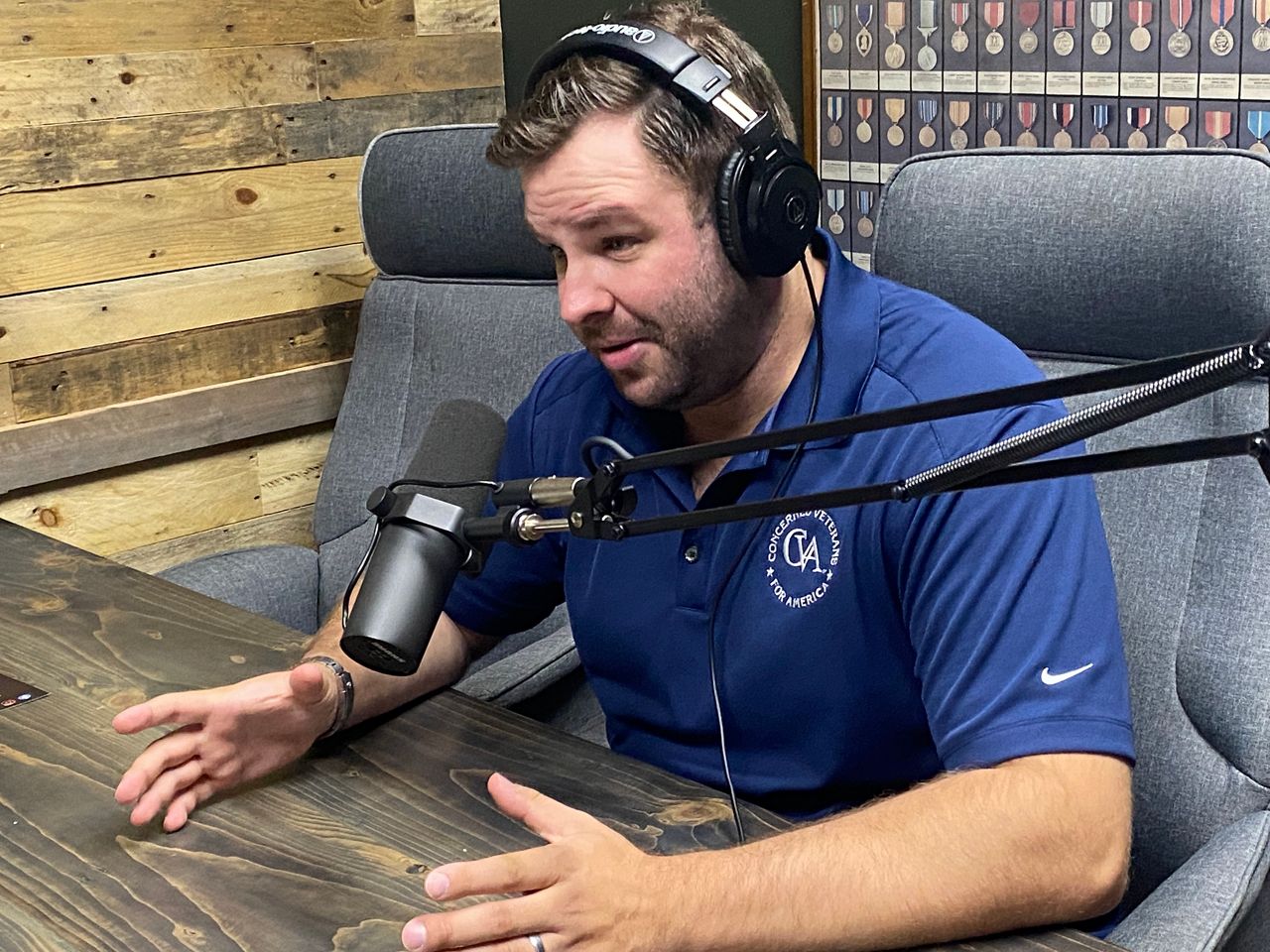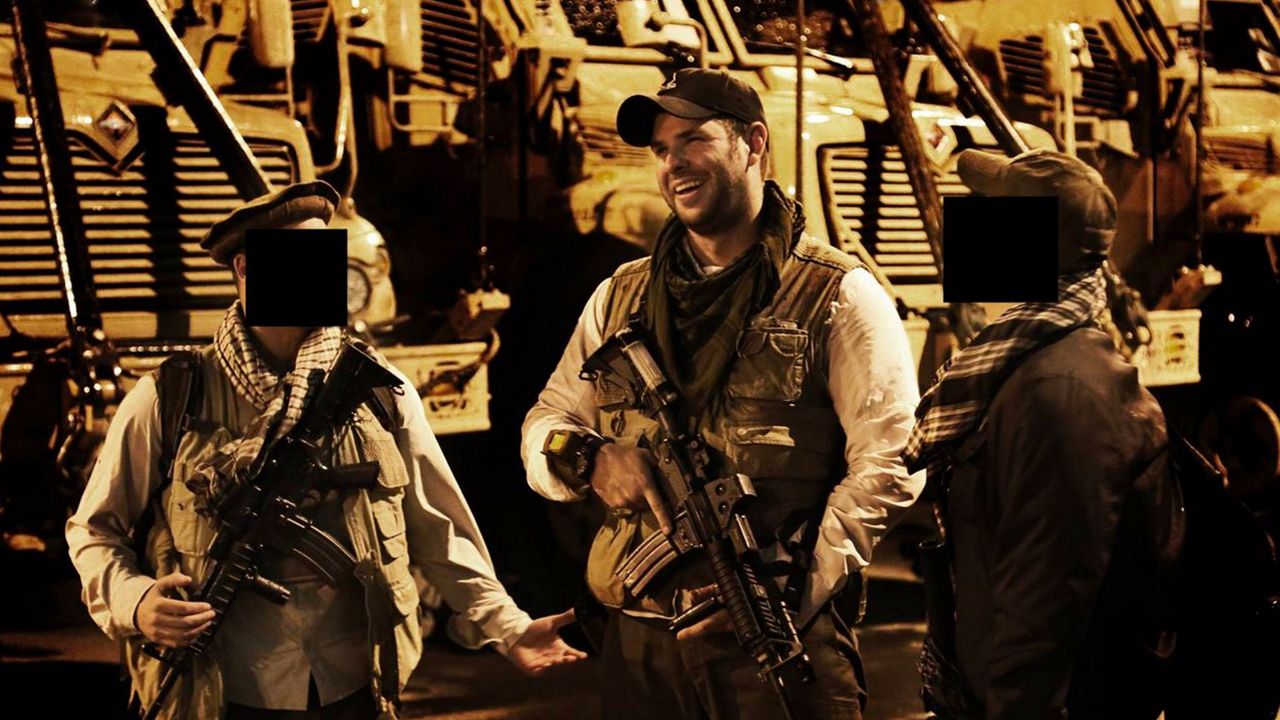Milwaukee’s Sam Rogers has seen the failures in Afghanistan first hand.
After three tours in Afghanistan as an intelligence officer and interrogator for the U.S. Army, he said no one in the U.S. military, who has spent time there training the Afghan police or army, is surprised by their complete failure to prevent the Taliban from taking control after the recent withdraw of U.S. troops.
“I’m telling you, every single military person that has been a part of mentoring government, police or security forces there has known, and will tell you one-on-one — if they are still in the military and they need to get a promotion and have got promotions ahead, they’re not going to say it publicly — but every single one of them will tell you that these are folks who are disinterested,’’ said Rogers.
“They don’t wear the expensive gear and the armor that American taxpayers have bought for them. They don’t clean the rifles that will save their lives that the American taxpayers bought for them. They’re high. They’re disinterested. For most of these folks, it was the best-paying job available at the time, and that’s why they were there.”
Since leaving the Army, Rogers has been the Coalitions Director for Concerned Veterans for America-Wisconsin, an organization that has worked with the last two administrations to withdraw American troops from Afghanistan.

And while assigning blame has been the predictable course of action from politicians looking to benefit their individual interests, Rogers believes Democrats, Republicans and the last four presidential administrations are all culpable.
And he wants the key individuals on both sides of the aisle — in this case, the military and government — to stand up and admit their shortcomings.
“Now, more than ever, this is a time where military and government leaders need to be publicly highlighting that this is a policy failure,’’ he said. “This is not a failure of service members, or combat veterans, or people who have sacrificed there who have lost friends, who have lost limbs, who have died there.
“The American military, our all-volunteer military, has selflessly continued to sacrifice and did everything they were asked to do. This is a policy failure and I see so many veterans who are hurting right now because our leaders will not highlight the difference, because they’ve been continuing to leverage veteran trauma to perpetuate this conflict.”
Rogers cited a document sent in 2010 from a tactical commander in southern Afghanistan to then-Secretary of the Army John McHugh. The eight-page letter cited a myriad of problems, including issues with U.S. allies, the military policy in place and a belief that U.S. forces would unlikely be able to “provide Afghans with a level of education and training to make them an independent and reliable force that can deny Afghanistan as a safe haven to terrorists.”
In short, the commander believed the Afghans — because of illiteracy issues, lack of technical skills, health and hygiene issues, among many others — were simply incapable of being properly trained.
“The truth is,’’ said Rogers, “at the end of the day, there are a lot of people trying to say, ‘See, this proves that we had to stay there.’
“And I vehemently disagree with that. This reinforces that what we were doing in Afghanistan was not working. The entirety of the Afghan Army walking off the job in less than a week after 20 years and trillions of dollars demonstrates that the Afghan people were not invested in what it is we were trying to do here.
“It just highlights the lack of realism and the lack of vision as to what was truly on the table to be accomplished in Afghanistan.”
Another idea being floated is that a Taliban-controlled Afghanistan could now be more dangerous than it was in the 1990s, when it led to the Sept. 11, 2001 attack on the U.S.
Rogers doesn’t buy that argument.
“It’s ridiculous,’’ he said. “It’s an old trope, an old, bad trope. Yes, 9/11 was planned in Afghanistan partially; the Taliban hosted Al-Qaeda there. But 9/11 being successful was a failure of our domestic security.
“And we have since spent another trillion dollars on the Department of Homeland Security — we’ve sacrificed some of the Fourth Amendment rights under the Patriot Act that we’re never getting back — those were the things, those were the actions taken to prevent the next 9/11. Afghanistan was not about preventing the next 9/11, it was about punishment for killing our civilians, murdering our civilians in cold blood and that’s what we should have done. And then, we should have departed.’’
Story idea? You can reach Mike Woods at 920-246-6321 or at: michael.t.woods@charter.com



